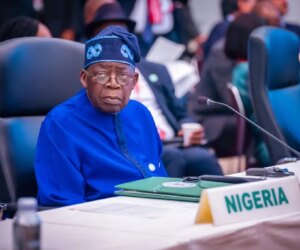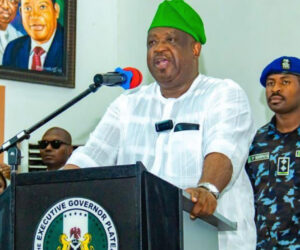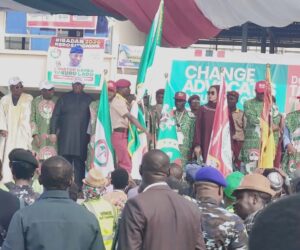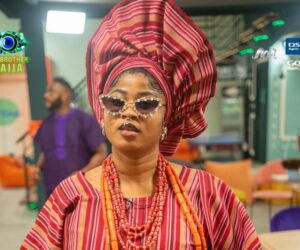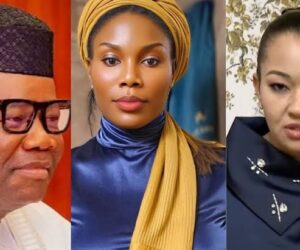Yiaga Africa’s Director of Programmes, Cynthia Mbamalu, has expressed concern over Nigeria’s recurring electoral challenges, warning that while votes are now being counted, many of them are votes that were bought.
Speaking in an interview on ARISE News on Monday, Mbamalu said low voter turnout continues to make it easier for politicians to influence election outcomes through financial inducement and impunity, rather than genuine popularity.
“Votes are beginning to count, which is why our data show that, yes, the official result announces a reflection of the vote cast across the polling units. And we trust our data,” she said. “But the truth is the votes that are counted are the votes that are bought. Politicians understand that the system is actually working, and so they invest a lot in spending as much money as possible.”
Mbamalu explained that low turnout gives politicians the leverage to manipulate results with less effort. “Lower turnout is easier to change things in the favour of who has the most money,” she stated. “Moving forward, we need to invest in civic and voter education. Nigeria is going to begin to value the power in their vote, value the power of choice, and making that decision in a legitimate way.”
On the issue of logistics and election day delays, Mbamalu criticised the Independent National Electoral Commission (INEC) for its continued failure to ensure early commencement of voting.
“At 8:30 a.m., which is the official time for commencement of accreditation and voting, only 26% of the polling units had commenced the process,” she said. “We celebrate that this election, we had earlier commencement than the last election. But the bigger challenge is that why don’t we consistently deal with logistics and management in our elections? Especially for a state, this is just a state election.”
She added, “INEC honestly needs to go back and review its plans, its strategy, leverage both logistics, training, and technology to see how we improve on deployment of materials so that voters who are at the polling unit on time would get accredited and go home and continue their lives.”
Mbamalu further faulted the political class for failing to build trust in the democratic process. “The only reason you deploy money to the field is because you don’t trust that voters will believe in you,” she said. “And this is not a one-party thing. The different parties were giving out monies. Unfortunately, this time around, we saw issues around transfers. So people had POS in some locations, which is why it’s not easy to even track it now.”
She stressed that the act of vote buying reflects politicians’ lack of confidence in both their candidacy and Nigeria’s democracy. “Because the only reason you deploy money is because you don’t trust the process. You don’t believe the system works. And you don’t believe the voters are even trusting you as a candidate,” she said.
On low voter turnout, Mbamalu said many young Nigerians no longer participate in elections because they have lost confidence in governance and the electoral process.
“There is no incentive to participate. If you ask the average young person on the street, the question is, they will always tell you, we don’t trust our votes will count,” she said. “Even though we’ve seen improvement in the process, the bigger question is lack of trust. The second is the policy of governance. Why should I vote when leadership does not meet my needs?”
She said the disconnect between leaders and citizens has deepened apathy. “Governance itself has not improved my life in any way, personally. And so for them, why waste my time voting for people who will get elected? And at the end of the day, the policies of the voters are their needs,” she noted.
Mbamalu also called on INEC and other institutions to improve citizen engagement and rebuild public confidence after past election controversies.
“Post the 2023 elections, there were major challenges from that election, but INEC never had a conversation with citizens,” she said. “There’s a process of confidence building where institutions that make promises to the people and fail on those promises create an opportunity to engage these same people, to explain what the issues are, and to highlight the steps that we take to address it in forthcoming elections.”
She lamented that public distrust in national institutions extends beyond the electoral body. “We don’t have that open system of citizens’ engagement and interaction in Nigeria, which is why there’s a growing decline in trust in certain institutions, not just INEC, but in the National Assembly, in a lot of government institutions. Citizens no longer have trust in a lot of these institutions,” she said. “We need institutions that, when they have an issue, they can address it and address the people differently.”
Calling for stricter enforcement of electoral laws, Mbamalu said the culture of impunity among politicians must end. “No voter should showcase or show up who they competed for, not even the governor of a state or the president, because our rule is secret ballot,” she said. “Imagine if we start making arrests for even high-profile people who breach the guidelines at the polling unit. It would curb their culture.”
She added, “We need a system that can truly punish offenders in the electoral process. That is one way to curb impunity in the process and create some level of sanity in the electoral process.”
On electoral reform, Mbamalu called for a review of the law on voter accreditation. “My take on that is for electoral reform, we need to review the electoral act on mandatory PVC. That is one way to solve this problem,” she said.
Despite the challenges, Mbamalu maintained that the country’s electoral system is improving, urging citizens to participate in large numbers to make manipulation more difficult.
“Honestly, the process is getting better, but we just need to trust it enough to show up in our numbers,” she said. “To change electoral outcome, the numbers is all that matters. So if 10 people come out and vote, and these 10 people’s votes were good, the results will still reflect the choices of these 10 people.”
Faridah Abdulkadiri
Follow us on:


